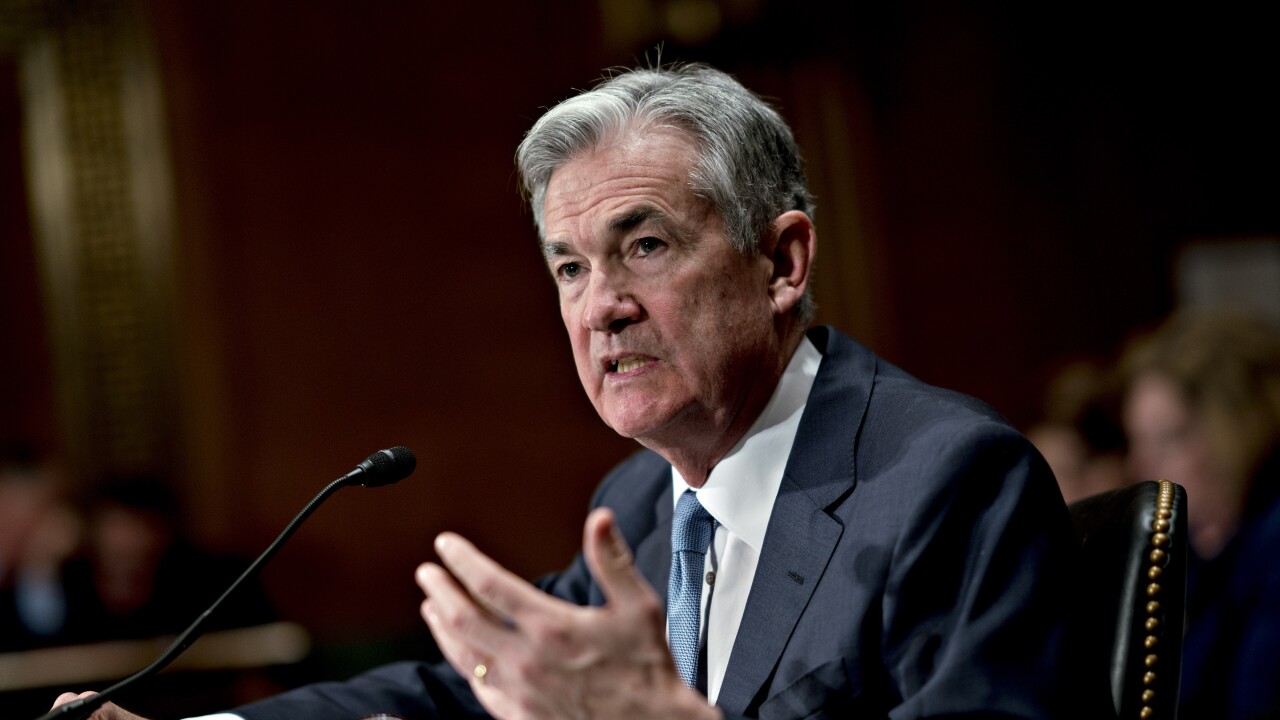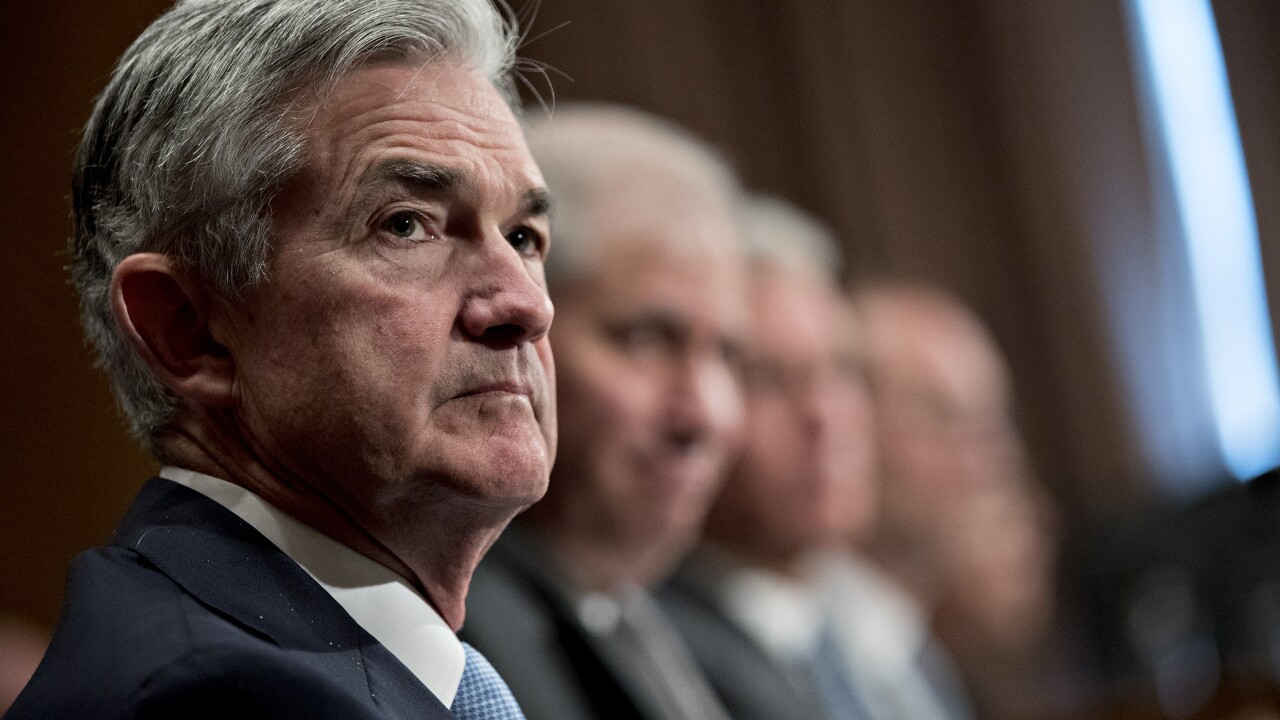-
It's not clear exactly what might pull investor sentiment and 10-year Treasury yields, which rates for the 30-year mortgage are benchmarked to, off the current lows.
December 31 -
There is no banking crisis, but the president’s actions are threatening to create one.
December 24IntraFi Network -
Interest rates are nearing the neutral level — the rate that neither stimulates nor restrains economic growth — Federal Reserve Board Chair Jerome Powell said Wednesday.
November 28 -
Another regulator has already gone out on its own with an advance notice of proposed rulemaking. But, Powell said, "It’s a process and we’re very much interested in pushing forward.”
September 26 -
While regulatory relief legislation would raise the asset threshold for “systemically important” banks, Federal Reserve Chairman Jerome Powell said the central bank could still apply prudential scrutiny to banks below that new cutoff.
March 21 -
There's too much momentum and too little debt for rising interest rates to derail the U.S. economic expansion or drive up the cost of home ownership.
March 14 -
Senate Majority Leader Mitch McConnell, R-Ky., filed a motion on the Senate floor Thursday setting up a potential vote next week on the bipartisan regulatory relief package.
March 2 -
Democrats used a hearing with Fed Chair Jerome Powell to lay the groundwork for an intraparty debate over the merits of the Senate’s regulatory relief bill.
March 1 -
Powell, a former investment banker who has served as a Fed governor, was confirmed by the Senate last month to a four-year term as chair of the central bank.
February 5 -
Senators overwhelmingly approved Jerome Powell to lead the Federal Reserve Board despite vocal opposition from some Democrats.
January 23 -
The Senate Banking Committee had approved Powell already in December, but a revote was necessary after the Senate adjourned for the year without finalizing his confirmation.
January 17 -
More than 100 pending Trump administration nominees, including Fed Chair-designate Jerome Powell, must update their financial disclosures and have the White House resubmit their names for consideration by the Senate.
January 3 -
The Trump administration's Financial Stability Oversight Council is likely to remove the systemically important financial institution label for the remaining nonbanks on the list, but it might consider adding other firms such as Fannie Mae and Freddie Mac.
December 28 -
Sen. Elizabeth Warren, D-Mass., was the only member of the Senate Banking Committee to oppose the nomination of Federal Reserve Board Gov. Jerome Powell to lead the central bank.
December 5 -
President Trump’s pick to head the Federal Reserve will face the Senate Banking Committee this week. Here’s what to watch for.
November 27 -
Federal Reserve officials meeting earlier this month saw an interest-rate increase in the near term even as divisions persisted over the policy path forward amid tepid inflation.
November 22 -
During his time as Fed governor, chair-designate Jerome Powell has outlined his views on a host of bank regulatory matters, including the need for regulatory relief, the push for housing finance reform, blockchain and much more.
November 5 -
Many industry observers believe Federal Reserve Board Janet Yellen will retire from the central bank once her term as chair expires in February. But there are reasons she might stay.
November 3 -
Fed Gov. Jerome Powell, who was first nominated to the central bank by former President Obama, is widely seen as a continuity choice.
November 2 -
If President Trump picks Federal Reserve Board Gov. Jerome Powell as its next chair, it may represent the best of all worlds for bankers — a policymaker who will continue the central bank's monetary policy but be open to regulatory changes.
October 30

















